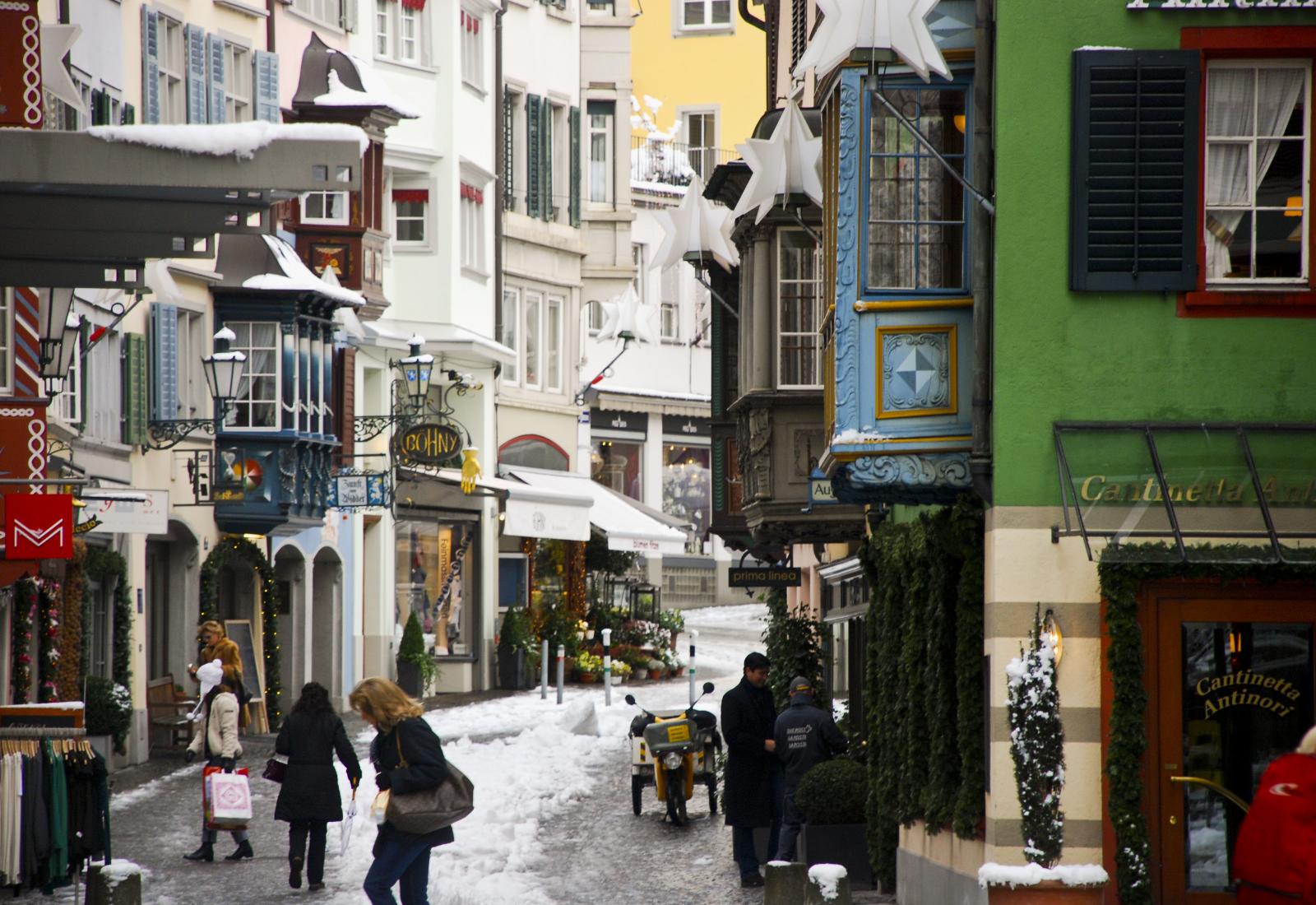The Swiss Federal Council adopted the Anti-Money Laundering Ordinance (AMLO). In its report, the Ministry of Finance of the Confederation recalled that the intergovernmental Financial Action Task Force on Money Laundering (FATF) set new standards in anti-corruption activities in February 2012. As a member of FATF, Switzerland adopted these proposals in December 2014, but number of necessary changes in the Criminal Code required the Government to adopt a separate decree.
The new rule comes into force on January 1, 2016. It sets a strict set of conditions under which commercial workers will have to report to the authorities, if they suspect money laundering through their company.
When a customer makes a single purchase in cash worth more than 100 th. francs ($ 99.6 th.), the seller is obliged to request the buyer’s personal data (name, address, place of residence, date of birth and nationality). If the buyer is a legal entity, they must specify the name and address. If the client is acting on behalf of another person, then a specific form must be filled as well.
After filling the questionnaire, the seller is obliged to check the buyer’s identity (passport, driver's license or ID), copy the document or take a note that the original has been presented. The seller keeps application forms and the documents’ copies. If he had any suspicion of the legal origin of funds, he shall immediately report this to the police department for combating money laundering in the prescribed form.
Before contact with the authorities, the seller himself must make an effort to verify origins of the large sums of cash, if "anything seemed unusual to him" (for example, if personal data are under-represented or they are "plainly false"). If the seller has a slightest doubt about the authenticity of identity documents, he is obliged to report on suspicious customers. It is also considered suspicious if a buyer pays a large sum in small bills, or purchases mainly mass-produced goods.
According to the Swiss Neue Zürcher Zeitung, Anti-Money Laundering Ordinance is a compromise in its current wording: before, the government proposed to ban all cash payments in excess of 100 th. francs. The ban’s supporters argued that nobody in the world supposedly has fair reasons to make such a large payments in cash. However, Parliament voted against the government’s proposal.
The document’s final version reserves a large number of "legal loopholes" and common phrases, which allow different interpretation of the law and in fact threatens to further restrictions, said a representative of Detailhandel Schweiz (DHS), the professional association of retailers in Switzerland.
Dealers of luxury goods are expressing the greatest outrage. Switzerland, home to 461 th. dollar millionaires (this is 5.6% of the population), accumulates 2% of global luxury market. In 2014, the national market of luxury goods totaled $ 6.2 billion, according to Luxury Society.
At a hearing in the Finance Ministry, representatives of the Union of Swiss art dealers (VKMS) accused the authorities that they are introducing a concealed ban on cash in the difficult period of negative bank rates.
Back in September, at a meeting in Berne Museum of Fine Arts, Head VKMS Sylvia Furrer Hoffmann noted that bulk of the payments is still carried via bank transfers. "Yet, among other bank requirements for fund transfers to risky industries [including arts], there is a need to specify additional information and documents for payments over 25 th. francs", - she said. A report of Swiss law enforcement agencies, issued June this year, said no money laundering in the art trade was revealed.
The industry representatives believe that entrepreneurs will have to support the auditing system by their own. Only this way they can avoid possible criminalization of both the buyer and the seller. According to Furrer’s estimates, each player only on the art market will have to spend at least 45 th. francs on paperwork. The sum does not includes cost of an additional audit, which can be 2-4 th. francs for each case. This will be additional burdens for the luxury goods market, which is already approaching slowdown.
source: financialexpress.com
The new rule comes into force on January 1, 2016. It sets a strict set of conditions under which commercial workers will have to report to the authorities, if they suspect money laundering through their company.
When a customer makes a single purchase in cash worth more than 100 th. francs ($ 99.6 th.), the seller is obliged to request the buyer’s personal data (name, address, place of residence, date of birth and nationality). If the buyer is a legal entity, they must specify the name and address. If the client is acting on behalf of another person, then a specific form must be filled as well.
After filling the questionnaire, the seller is obliged to check the buyer’s identity (passport, driver's license or ID), copy the document or take a note that the original has been presented. The seller keeps application forms and the documents’ copies. If he had any suspicion of the legal origin of funds, he shall immediately report this to the police department for combating money laundering in the prescribed form.
Before contact with the authorities, the seller himself must make an effort to verify origins of the large sums of cash, if "anything seemed unusual to him" (for example, if personal data are under-represented or they are "plainly false"). If the seller has a slightest doubt about the authenticity of identity documents, he is obliged to report on suspicious customers. It is also considered suspicious if a buyer pays a large sum in small bills, or purchases mainly mass-produced goods.
According to the Swiss Neue Zürcher Zeitung, Anti-Money Laundering Ordinance is a compromise in its current wording: before, the government proposed to ban all cash payments in excess of 100 th. francs. The ban’s supporters argued that nobody in the world supposedly has fair reasons to make such a large payments in cash. However, Parliament voted against the government’s proposal.
The document’s final version reserves a large number of "legal loopholes" and common phrases, which allow different interpretation of the law and in fact threatens to further restrictions, said a representative of Detailhandel Schweiz (DHS), the professional association of retailers in Switzerland.
Dealers of luxury goods are expressing the greatest outrage. Switzerland, home to 461 th. dollar millionaires (this is 5.6% of the population), accumulates 2% of global luxury market. In 2014, the national market of luxury goods totaled $ 6.2 billion, according to Luxury Society.
At a hearing in the Finance Ministry, representatives of the Union of Swiss art dealers (VKMS) accused the authorities that they are introducing a concealed ban on cash in the difficult period of negative bank rates.
Back in September, at a meeting in Berne Museum of Fine Arts, Head VKMS Sylvia Furrer Hoffmann noted that bulk of the payments is still carried via bank transfers. "Yet, among other bank requirements for fund transfers to risky industries [including arts], there is a need to specify additional information and documents for payments over 25 th. francs", - she said. A report of Swiss law enforcement agencies, issued June this year, said no money laundering in the art trade was revealed.
The industry representatives believe that entrepreneurs will have to support the auditing system by their own. Only this way they can avoid possible criminalization of both the buyer and the seller. According to Furrer’s estimates, each player only on the art market will have to spend at least 45 th. francs on paperwork. The sum does not includes cost of an additional audit, which can be 2-4 th. francs for each case. This will be additional burdens for the luxury goods market, which is already approaching slowdown.
source: financialexpress.com



















